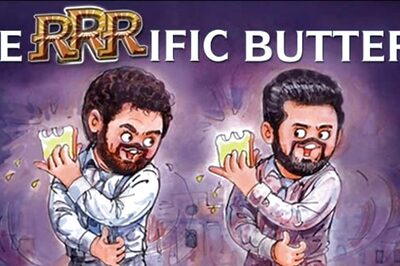
views
Los Angeles: Landmark Chilean drama A Fantastic Woman a stirring story of love and loss that centers on a transgender woman, won the best foreign language Oscar on Sunday.
A favorite to win, the film has been hailed as a milestone in representing transgender characters and for taking on the timely subject of transgender identity with compassion and sensitivity.
Clutching his gold statuette, director Sebastian Lelio called his transgender leading lady, Daniela Vega, his inspiration for the film.
A smiling Vega, in a magenta gown, stood behind Lelio on the stage, alongside the film's producers.
The film follows Marina, a transgender waitress and nightclub singer, whose long-term and loving older boyfriend suddenly dies. They had shared a protective bubble of bliss and tenderness that is suddenly shattered and Marina's world falls apart.
Marina spends most of the film numbed by grief and battling for the right to mourn as her lover's family shuns and humiliates her and tries to block her from his funeral.
Vega plays the part with unshakable dignity and poise in the face of scorn, discrimination and hostility from her boyfriend's family and police investigating his death.
Some had hoped Vega would become the first transgender actor nominated for an Oscar. Hollywood has come under increasing criticism for celebrating trans stories played by non-trans actors, while failing to cast transgender actors — Hilary Swank ("Boys Don't Cry"), Jared Leto ("Dallas Buyers Club"), Eddie Redmayne ("The Danish Girl") and Felicity Huffman ("Transamerica") have all garnered Oscar nominations for trans roles, with Swank and Leto winning.
The Chilean film beat out Lebanon's "The Insult," Russia's "Loveless," Hungary's "On Body and Soul," and Sweden's "The Square."
The category was presented by Puerto Rican actress-singer Rita Moreno, who donned the same gown she wore 56 years ago when she won best supporting actress for "West Side Story" in 1962
Moreno received a standing ovation when she took the stage.
The 86-year-old Moreno quoted Frank Capra as saying there were three universal languages: "Music, mathematics and the one we honor tonight, the universal language of film," Moreno said.
"Regardless of its country of origin or the dialect of its words, a great film conveys a story that speaks to the one condition we all share," Moreno said. "The human condition."



















Comments
0 comment